Henry V (1944)
“No king of England if not king of France!”
|
Synopsis: |
|
Genres, Themes, Actors, and Directors:
Review: … and then showing us the play opening up with audiences clearly present: A Chorus figure (Leslie Banks) talks us through what we’re seeing: … but it takes a while to understand what’s going on narrative-wise, given the play is presented in authentic Shakespearean English (not easily comprehensible to modern audiences). Instead, we focus on the colorful costumes and attempts at crowd-pleasing humor, as when the Archbishop of Canterbury (Felix Aylmer) keeps dropping the papers he’s reading while sharing news with King Henry about the state of France. Henry proclaims his intention to go to war against France — but meanwhile, we’re introduced to peripheral comedic characters whose presence doesn’t make much sense (though at least Robert Newton is recognizable in one role): Eventually the setting of the play broadens beyond the Globe, showing us Henry’s troops in France, preparing for battle. An extended sequence follows Henry walking incognito through the night to listen to his men: The Battle of Agincourt comes next and is impressively filmed, reminding me instantly of the lengthy combat sequence in Eisenstein’s Alexendar Nevsky: We also meet beautiful Princess Katherine (Renee Asherson), who converses with King Henry in a combination of French and English: Overall, we get the gist of the storyline — though it surely will feel much less relevant to modern viewers than either Britons of Shakespeare’s time and/or viewers of the mid-1940s, who may have been more familiar with Shakespearean works. These days, it remains worth a look primarily for its innovation as a beautifully stylized presentation of a classic play — one which helped to rally British morale during some of its darkest years at war, as indicated in these quotes by King Henry:
Notable Performances, Qualities, and Moments:
Must See? Categories
(Listed in 1001 Movies You Must See Before You Die) Links: |
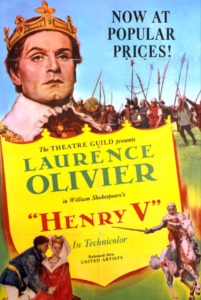
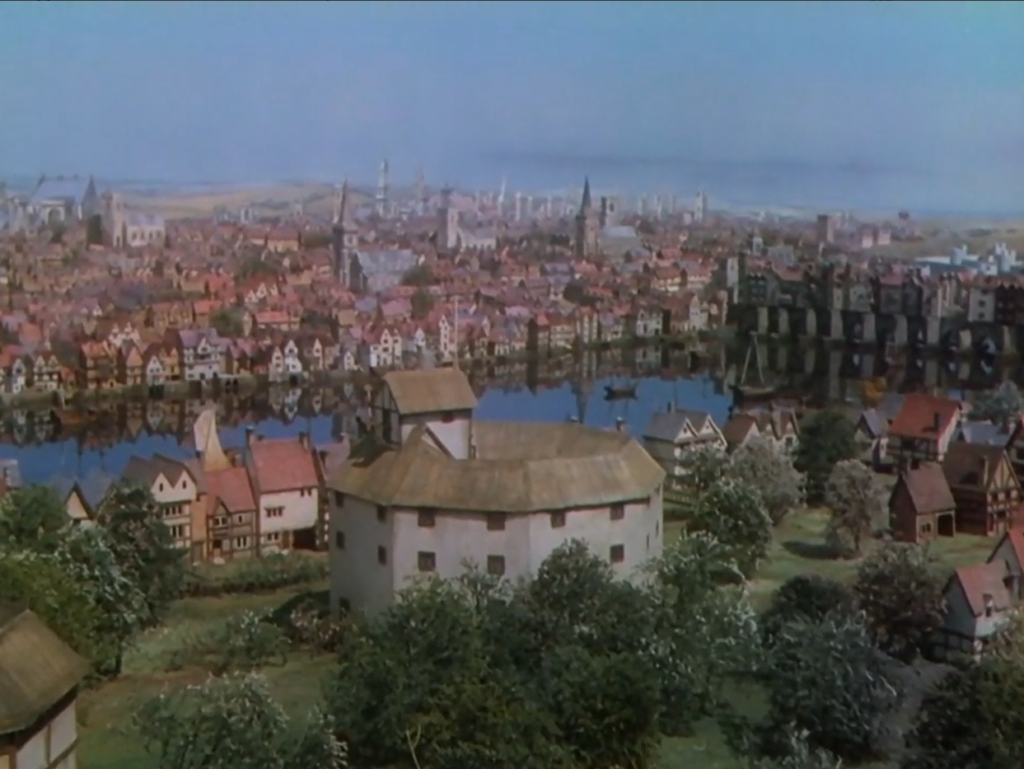
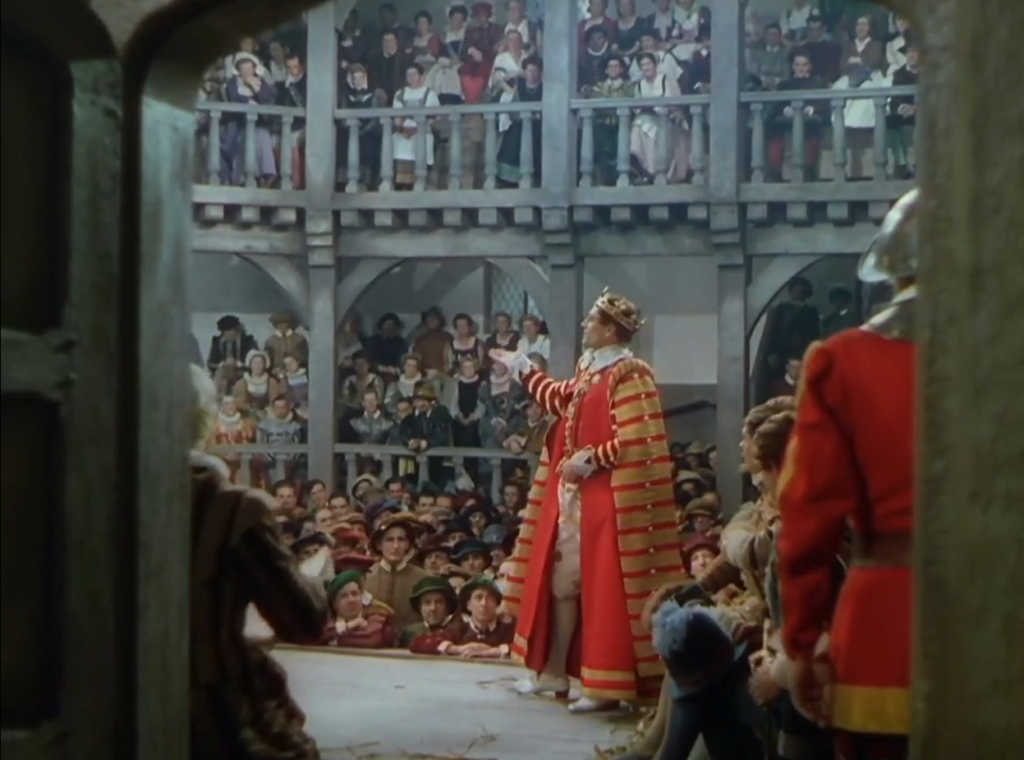
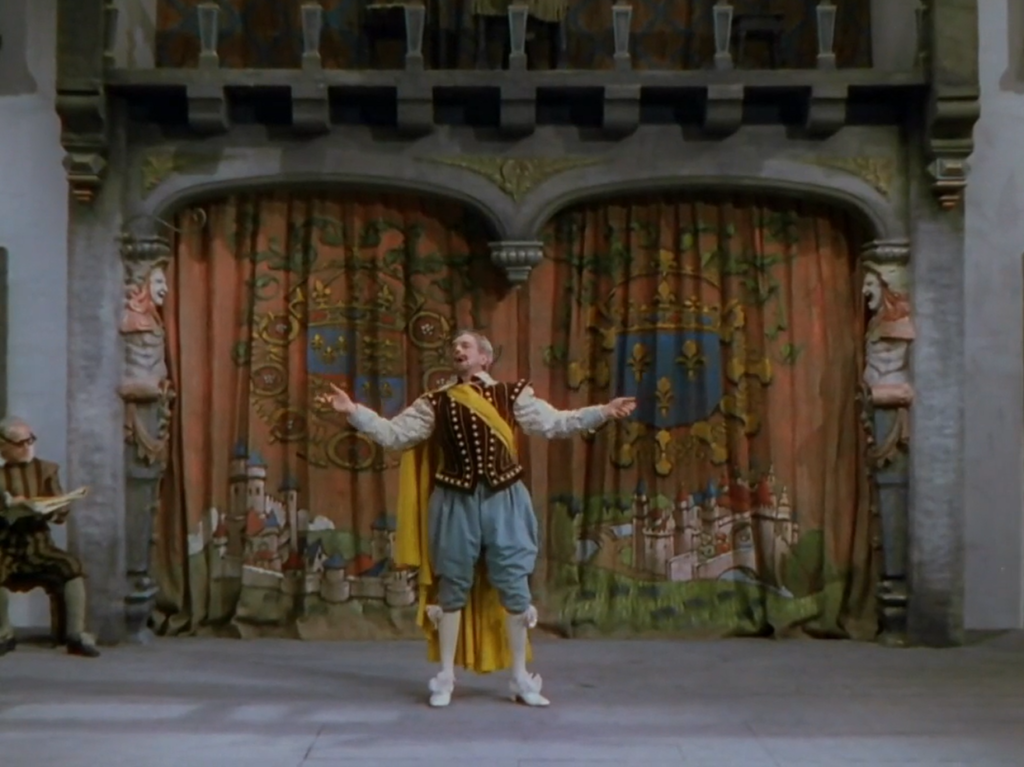
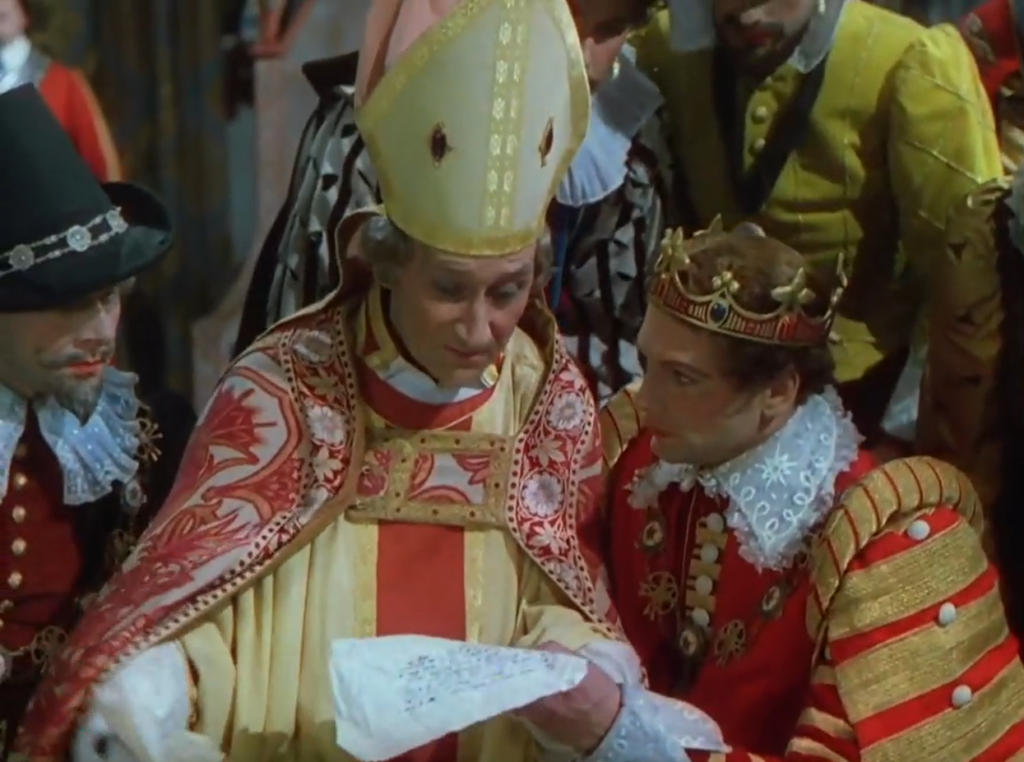
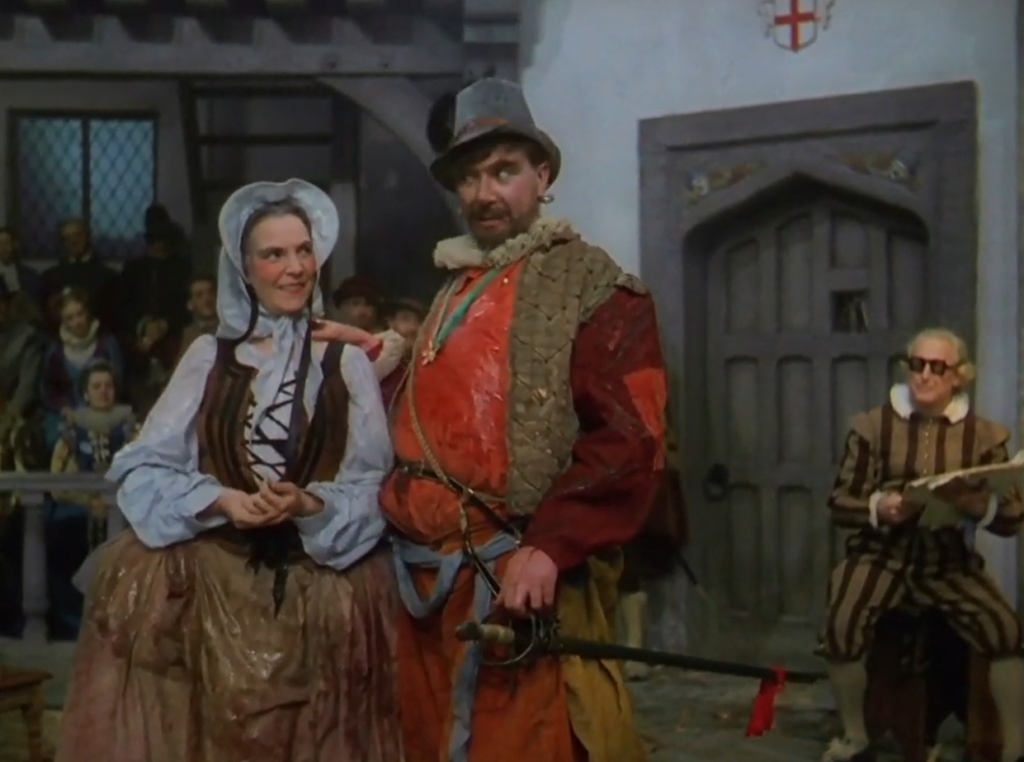
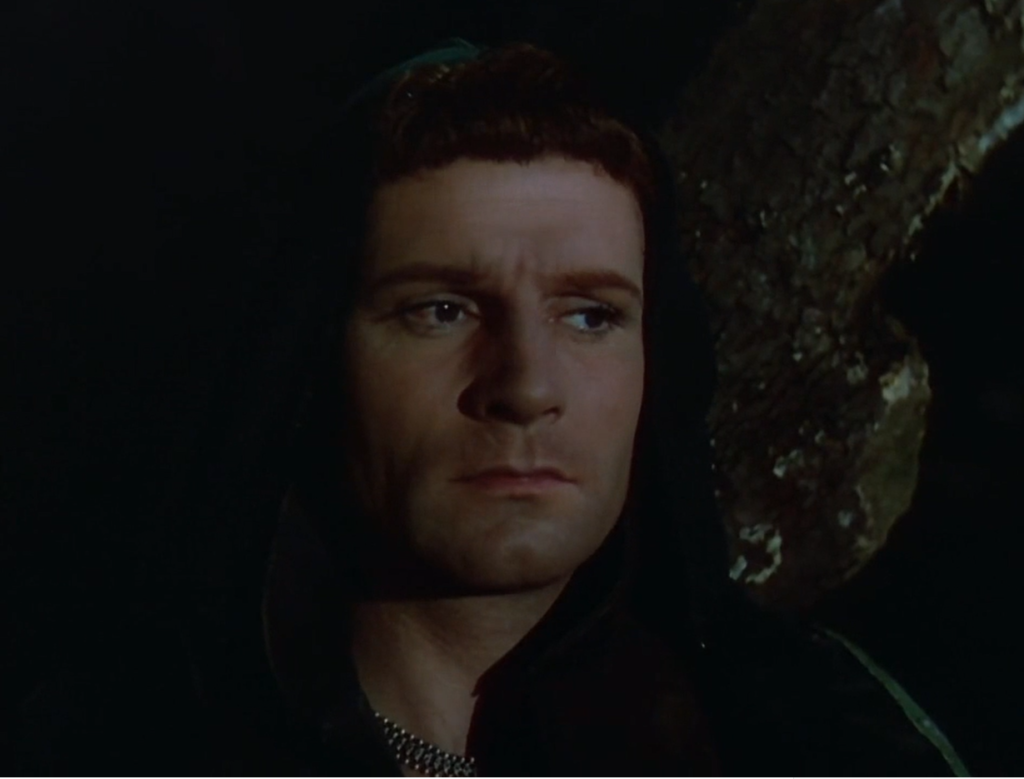
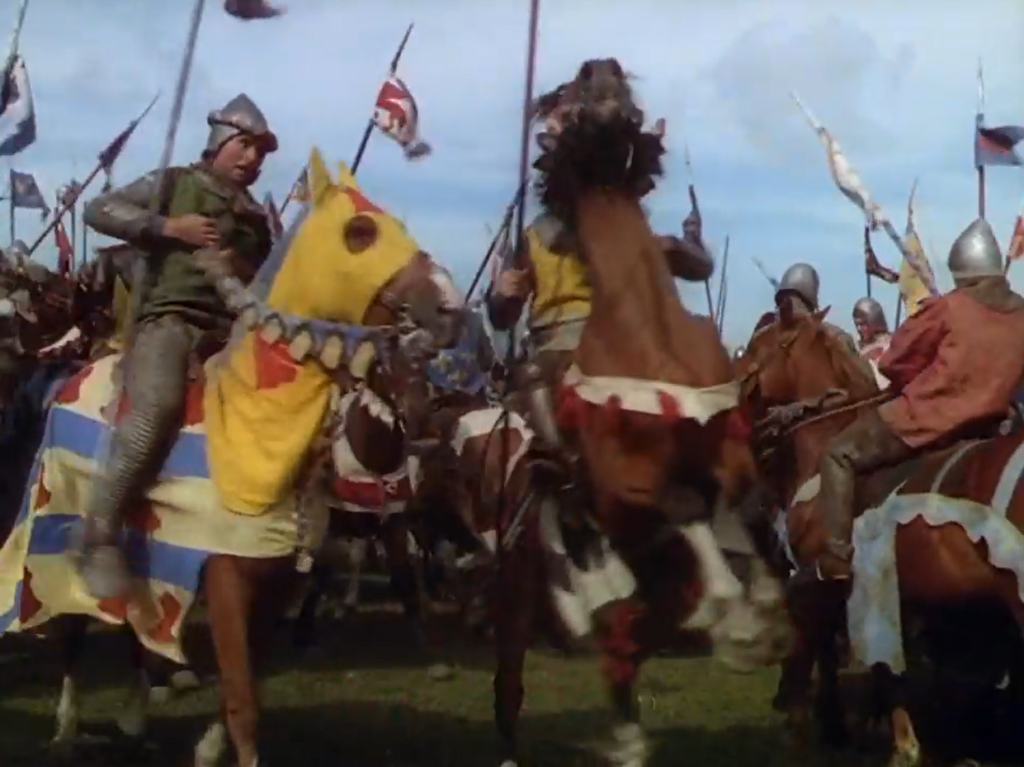
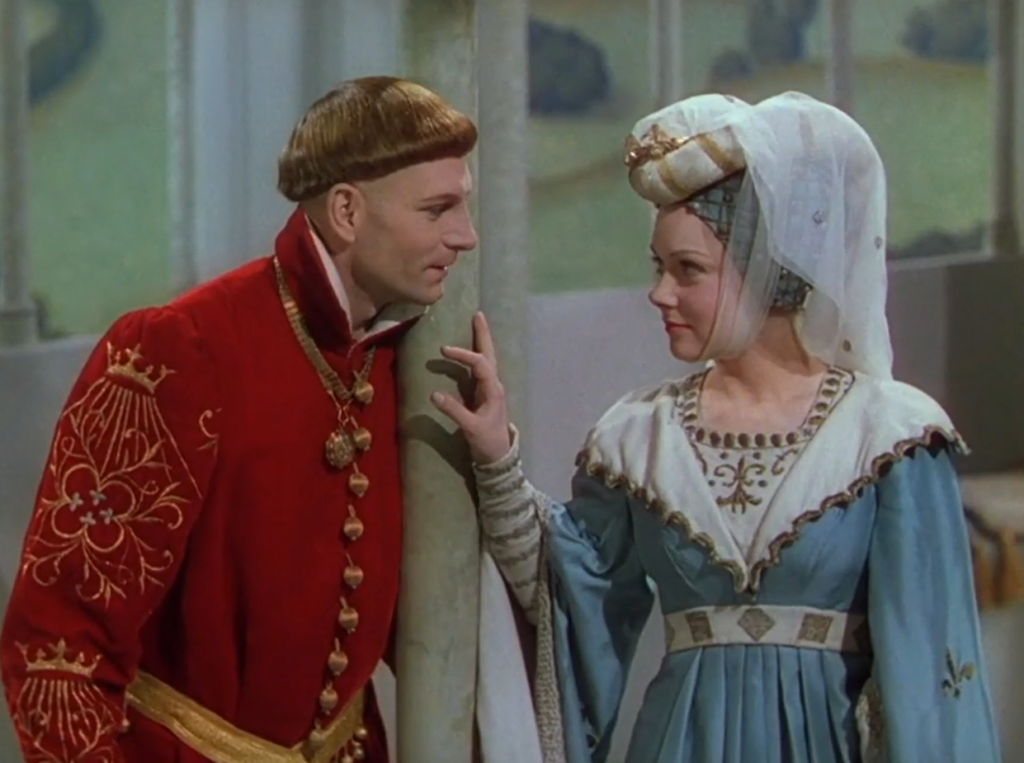
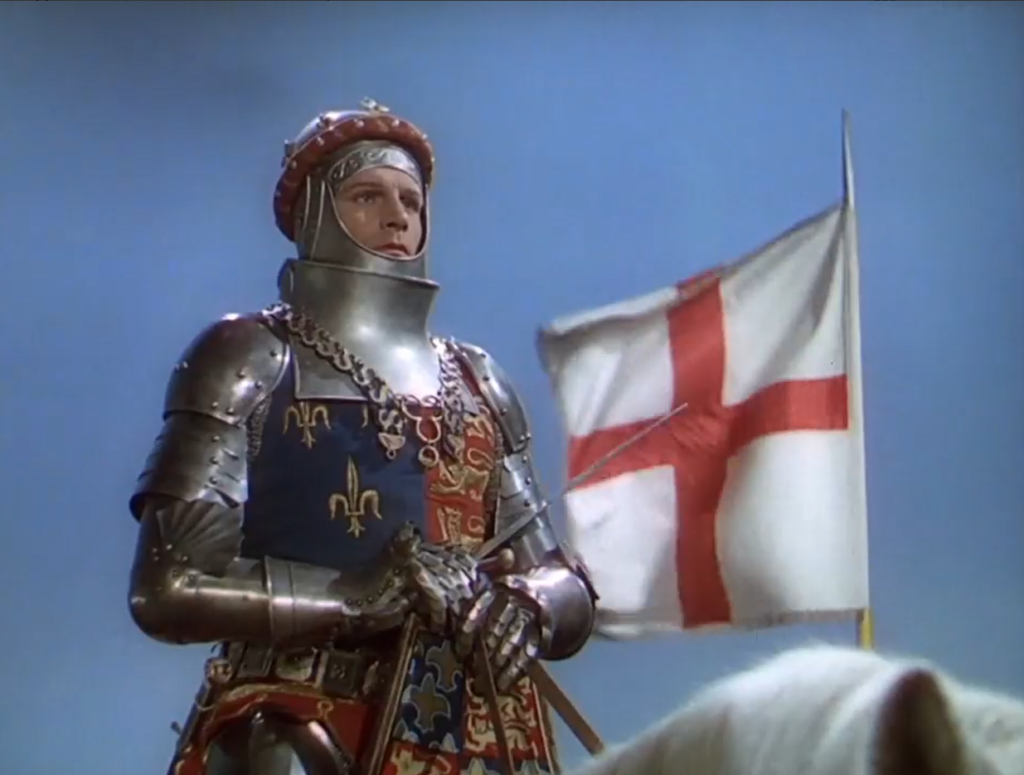
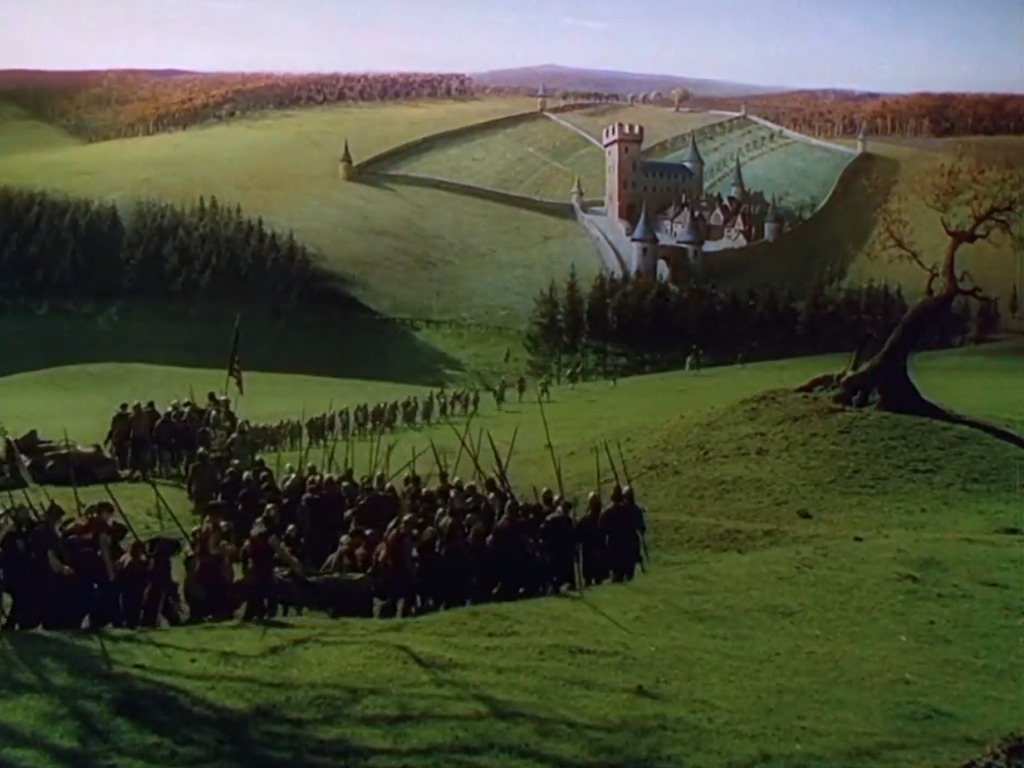
One thought on “Henry V (1944)”
Not must-see. Mainly for those who like films of Shakespeare plays. (It’s not especially one of my favorites since it doesn’t come off to me as an example of the writer at his best or most memorable.)
For my money, the film’s first 15 minutes (re-enacting the kind of performance we’d’ve seen at the Globe 400 years ago) are the most compelling (esp. for little touches such as how actors of the day dealt with things like rain during a performance, but I also found the audience reactions refreshing). I found it to be such a clever novelty that it’s possible I wouldn’t’ve minded if the rest of the film had followed suit.
(I’ll admit I found the paper-business with the Archbishop somewhat overdone.)
Alas, the rest of this version of the work is in many ways typically Shakespearean but weighing in on the talkiness more than anything else (aside from the battle sequences). And, of course, there’s Olivier being Olivier. (For some reason, I seem to recall liking the 1989 Kenneth Branagh film more – and I’m not particularly a Branagh fan either.)